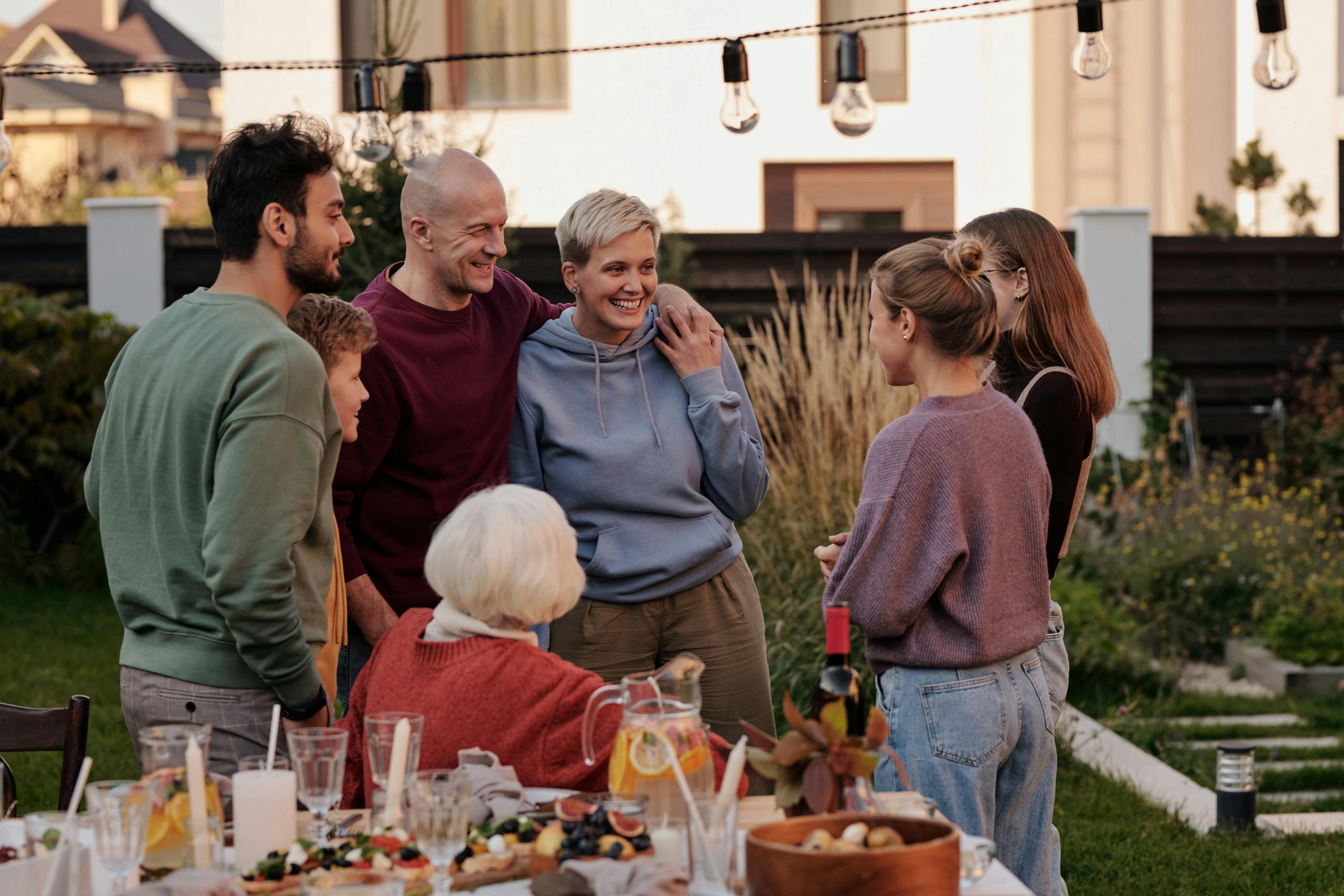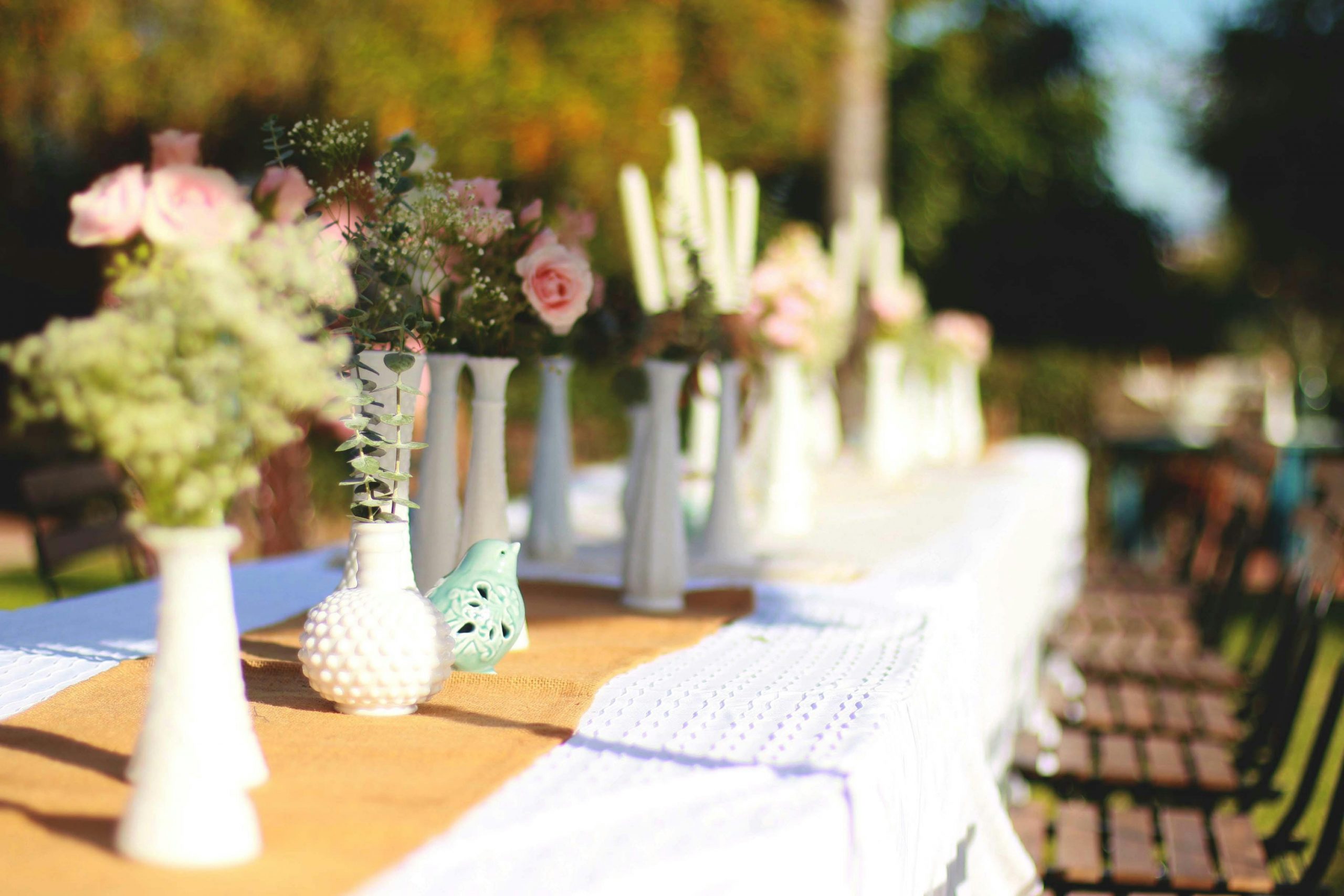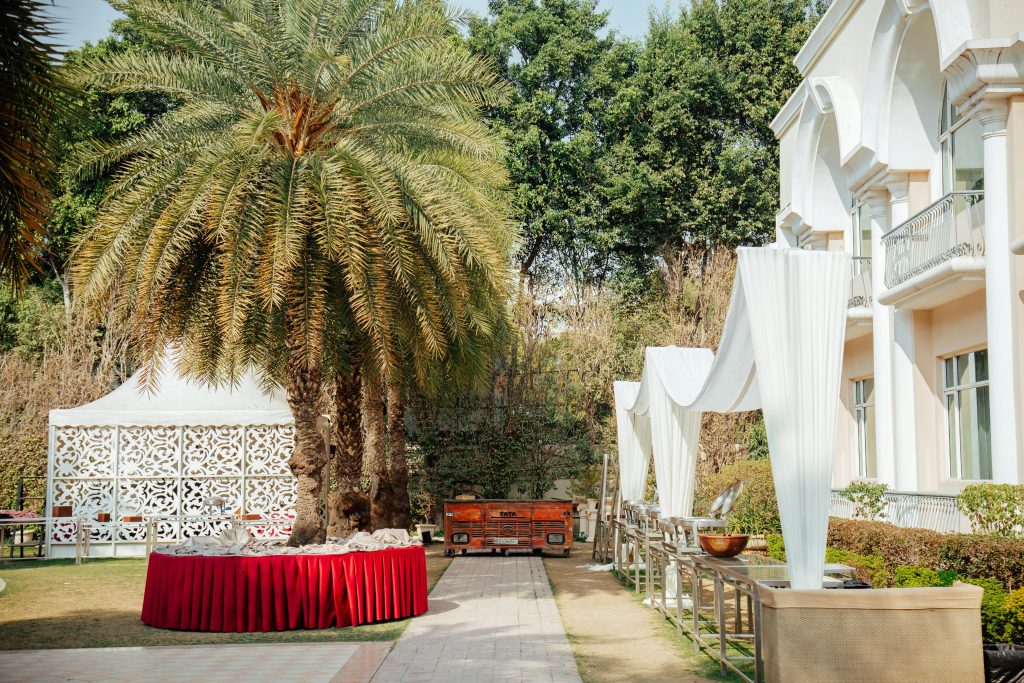- Highlights
- Understanding the Event’s Purpose
- Advantages of Indoor Event Spaces
- Advantages of Outdoor Event Spaces
- Challenges of Each Option
- Factors to Consider Before Deciding
- The Best of Both Worlds: Hybrid Event Spaces
- Practical Tips for Making the Final Decision
- Weather-Proofing Outdoor Events
- Why Lighting Matters in Every Space
- Conclusion
Highlights
- The event’s purpose and style should guide your venue choice.
- Indoor spaces offer comfort, climate control, and privacy.
- Outdoor spaces provide natural beauty, flexibility, and open-air energy.
- Consider weather, guest comfort, accessibility, and budget before deciding.
- Hybrid or semi-outdoor venues can give you the best of both worlds.
- Always have a solid backup plan — especially for outdoor events.
- Visit potential venues in person before booking to check lighting, space, and amenities.

Planning a memorable celebration for your family takes more than just food, music, and good company — it begins with choosing the right event space. Whether it’s a birthday party, reunion, wedding, or anniversary, your choice between an indoor or outdoor venue sets the tone for everything else: atmosphere, comfort, logistics, and even the memories you’ll make.
Before you book a space, take the time to understand what each option offers. Indoor venues provide security and comfort, while outdoor venues offer open-air charm and a natural backdrop. Both have distinct advantages, and knowing how to weigh them will make your planning smoother and your event unforgettable.
Understanding the Event’s Purpose
Every great celebration starts with a clear vision. Before deciding between an indoor or outdoor setting, think about what kind of experience you want to create.
For instance, a family reunion may call for a relaxed, spacious outdoor environment where kids can run around freely. A milestone birthday or anniversary might feel more elegant and intimate in a climate-controlled indoor space with fine décor.
Ask yourself:
- Do you want a casual, nature-inspired atmosphere or a more refined setting?
- Will your guests be more comfortable in a controlled environment?
- What activities or entertainment do you plan to include?
Having clarity on your event’s goals helps you narrow down the right kind of venue early on, saving time and avoiding costly last-minute changes.
Advantages of Indoor Event Spaces
- Reliable Climate Control
Indoor venues provide one of the biggest comforts: shelter from unpredictable weather. Whether it’s raining, snowing, or unbearably hot outside, your guests stay comfortable and your event runs on schedule.
Temperature regulation is especially important for elderly family members or young children, ensuring everyone enjoys the day without discomfort.
- Built-In Amenities
Most indoor venues come fully equipped with the essentials:
- Restrooms
- Electricity and lighting
- Audio-visual setups
- Furniture such as tables, chairs, and stages
- Catering facilities or kitchens
This means you’ll spend less on rentals and logistics. Everything you need is already there, allowing you to focus on planning the event itself.
- Decor Flexibility
Unlike outdoor settings that depend on nature’s backdrop, indoor venues are a blank canvas. You can transform them into almost any theme — elegant, rustic, modern, or festive — with full control over lighting, décor, and layout.
For example, adjusting lighting intensity or adding decorative elements can dramatically shift the room’s mood, making it perfect for photos and ambiance.
- Privacy & Noise Control
If your event includes speeches, a slideshow, or sentimental moments, indoor venues provide privacy and minimal distractions. You won’t have to compete with traffic noise, wind, or other outdoor disturbances. This makes them ideal for smaller, more personal gatherings.
Advantages of Outdoor Event Spaces
Outdoor venues have a charm that’s hard to match. From backyard parties to park celebrations, the openness and beauty of the outdoors can create an unforgettable setting.
- Natural Scenery & Atmosphere
The biggest draw of outdoor events is nature itself. Green landscapes, gardens, or beachfront views offer a picturesque setting that requires minimal décor. Natural light also enhances photography, adding warmth and vibrancy to family portraits and candid moments.
- Spacious & Versatile Layouts
Outdoor spaces typically accommodate more guests than indoor venues, making them ideal for large family reunions, weddings, or community celebrations. You can customize the setup easily with tents, seating areas, or activity zones for kids.
Ideas for outdoor setups:
- A tented dining area with string lights for evening events.
- A shaded lounge with fans for comfort during warm days.
- Separate spaces for games, food, and entertainment.
- Relaxed Vibe
Outdoor events naturally feel more laid-back. Guests can move freely, enjoy fresh air, and engage in interactive activities like games or bonfires. This creates a family-friendly atmosphere that encourages connection and laughter.
- Cost Efficiency
Some outdoor locations, such as community parks or private backyards, can be budget-friendly options. You might need to rent equipment, but the savings from not booking a formal indoor venue can offset those costs.
Challenges of Each Option
No matter how beautiful a space looks, it’s important to weigh the potential downsides of both indoor and outdoor venues before making your decision.
Indoor Challenges
- Limited space: Indoor venues can feel crowded, especially with large guest lists.
- Higher rental costs: Premium indoor spaces often come at a higher price.
- Less natural light: Artificial lighting can sometimes make the atmosphere less vibrant.
- Restrictions on décor: Some venues limit what decorations you can use (no candles, confetti, or wall attachments).
Outdoor Challenges
- Weather dependence: Rain, wind, or heat can quickly disrupt your event.
- Limited amenities: You might need to rent restrooms, generators, or tents.
- Permit requirements: Some parks and public spaces require prior approval or noise permits.
- Insects and comfort issues: Mosquitoes, heat, or humidity can make guests uncomfortable if not managed properly.
Being aware of these challenges helps you prepare with smart contingency plans and realistic expectations.
Factors to Consider Before Deciding

Choosing between indoor and outdoor event spaces isn’t just about aesthetics — it’s a balance between practicality, comfort, and the overall experience you want to create.
- Weather & Seasonal Conditions
Always check the season and forecast for your event date. If you’re planning during spring or summer, outdoor spaces can be ideal. But for unpredictable climates or cold winters, an indoor venue may offer more reliability.
Pro tip: Even with the best forecast, always have a backup plan like a tent or a nearby indoor hall.
- Guest List & Accessibility
Consider who’s attending:
- Elderly relatives may prefer climate-controlled indoor venues.
- Children enjoy open outdoor spaces for games and exploration.
- Guests with mobility needs may require easy access and stable flooring.
Ensuring comfort for all guests makes your event more enjoyable and inclusive.
- Budget & Logistics
Indoor venues may cost more upfront, but they often include everything — tables, lighting, sound systems, and kitchens. Outdoor events, on the other hand, can start cheap but require additional rentals, such as:
- Tents and shade structures
- Portable restrooms
- Lighting and sound systems
- Power sources or generators
Prepare a detailed budget comparing both options before booking.
- Theme & Ambiance
Your event’s theme should align with the venue’s natural qualities. For example:
- A romantic anniversary dinner might shine indoors with mood lighting.
- A family barbecue or children’s birthday may thrive outdoors with plenty of space for games.
- A hybrid garden event offers both elegance and natural beauty.
For picture-perfect events, some families even prefer an event venue with natural light, which combines indoor comfort with outdoor brightness.
- Noise & Privacy
Outdoor events may encounter noise from nearby traffic or passersby. If your event includes emotional speeches or music performances, an indoor or semi-enclosed space might be better.
- Time of Day
Sunlight changes everything. Morning and early afternoon are great for outdoor settings, while indoor venues provide controlled lighting for evening events. Always schedule your event with the lighting conditions in mind.
The Best of Both Worlds: Hybrid Event Spaces
Can’t decide between indoor and outdoor? A hybrid venue might be the perfect solution. These spaces combine indoor comfort with outdoor charm, offering flexibility and versatility.
Benefits of hybrid spaces include:
- Weather backup: If it rains, you can easily move indoors.
- Flexible layouts: Host dinner inside and games or a photo booth outside.
- Enhanced experience: Guests enjoy varied environments without travel.
Examples of hybrid setups:
- Restaurants with courtyards or patios.
- Community centers with adjoining gardens.
- Barns with both indoor seating and outdoor ceremony areas.
These spaces provide the freedom to adapt while keeping your event cohesive and memorable.
Practical Tips for Making the Final Decision
After evaluating your needs, here’s how to ensure you make the right choice:
- Visit the Venue in Person
Photos don’t always tell the full story. Visiting lets you assess the space’s size, lighting, and flow — and helps you visualize your setup.
- Ask About Backup Plans
For outdoor spaces, always confirm what options are available if the weather changes suddenly. Some venues include covered areas or flexible rescheduling policies.
- Review Inclusions and Hidden Costs
Ask for a detailed breakdown of what’s included in your venue rental. Sometimes, “budget-friendly” venues end up costing more once you add necessities like furniture or lighting.
- Consider Logistics and Accessibility
Check the distance from parking to the event area, restroom locations, and any potential mobility issues. Convenience matters — especially for family gatherings with multiple generations attending.
- Check Reviews and Reputation
Look for feedback from previous clients. Online reviews or word-of-mouth recommendations can reveal how reliable the venue and its staff are.
- Coordinate with Vendors
If you’re hiring caterers, DJs, or photographers, ensure they have the access and power supply they need. Early communication prevents last-minute complications.
Weather-Proofing Outdoor Events
If you lean toward an outdoor celebration, planning for weather surprises is key.
Here are some practical ways to prepare:
- Rent tents or marquees: They protect from rain and harsh sun.
- Provide fans or heaters: Maintain guest comfort regardless of temperature.
- Keep umbrellas and ponchos handy: A small touch that guests will appreciate if it rains.
- Choose durable décor: Avoid lightweight or flammable materials that could blow away.
- Set up weatherproof sound systems: Outdoor acoustics vary, so test equipment beforehand.
A bit of preparation goes a long way in keeping spirits high and ensuring your event continues smoothly — rain or shine.
Why Lighting Matters in Every Space
Lighting is often overlooked but makes a major difference in atmosphere and mood.
For Indoor Events:
- Use warm lighting for cozy, intimate settings.
- Add uplighting or fairy lights to enhance ambiance.
- Consider professional lighting for photography or videography.
For Outdoor Events:
- String lights and lanterns create magic after sunset.
- Use solar-powered path lights to ensure safety for evening gatherings.
- Consider ambient lighting to highlight trees, tables, or décor pieces.
Good lighting transforms ordinary spaces into extraordinary ones — whether inside or under the stars.
Conclusion
Choosing between indoor and outdoor event spaces isn’t about which is “better” — it’s about finding what fits your event’s purpose, your guests, and your personal style. Indoor venues offer reliability, privacy, and convenience, while outdoor spaces bring freedom, fresh air, and beauty.
For many families, the right choice lies in balance — a setting that reflects both comfort and character. Whether it’s a garden celebration, a cozy indoor dinner, or a mix of both, thoughtful planning ensures your event will feel warm, welcoming, and unforgettable.
The secret is preparation: plan ahead, tour your venues, and stay flexible. With the right approach, your family celebration will be a moment everyone treasures for years to come.

